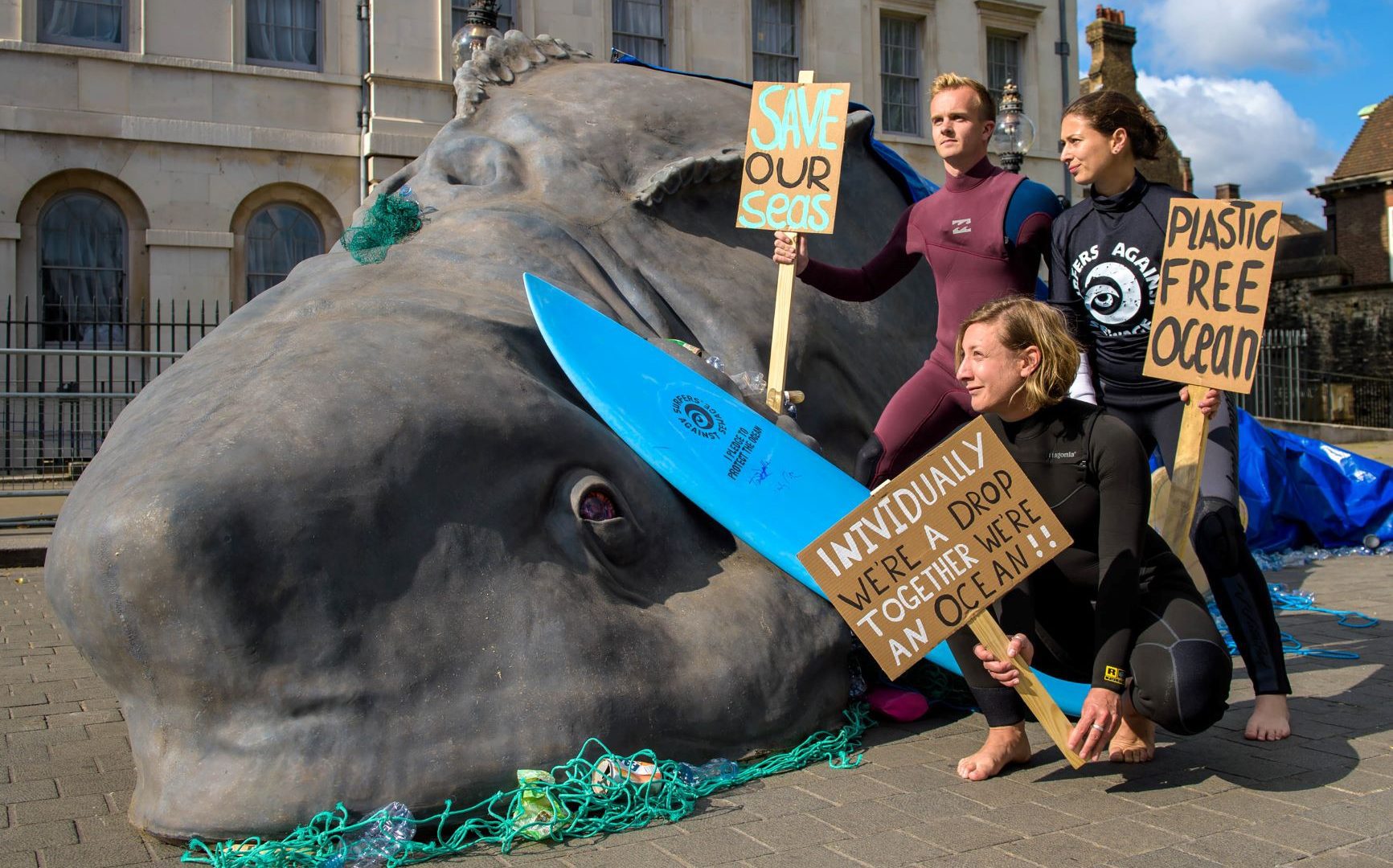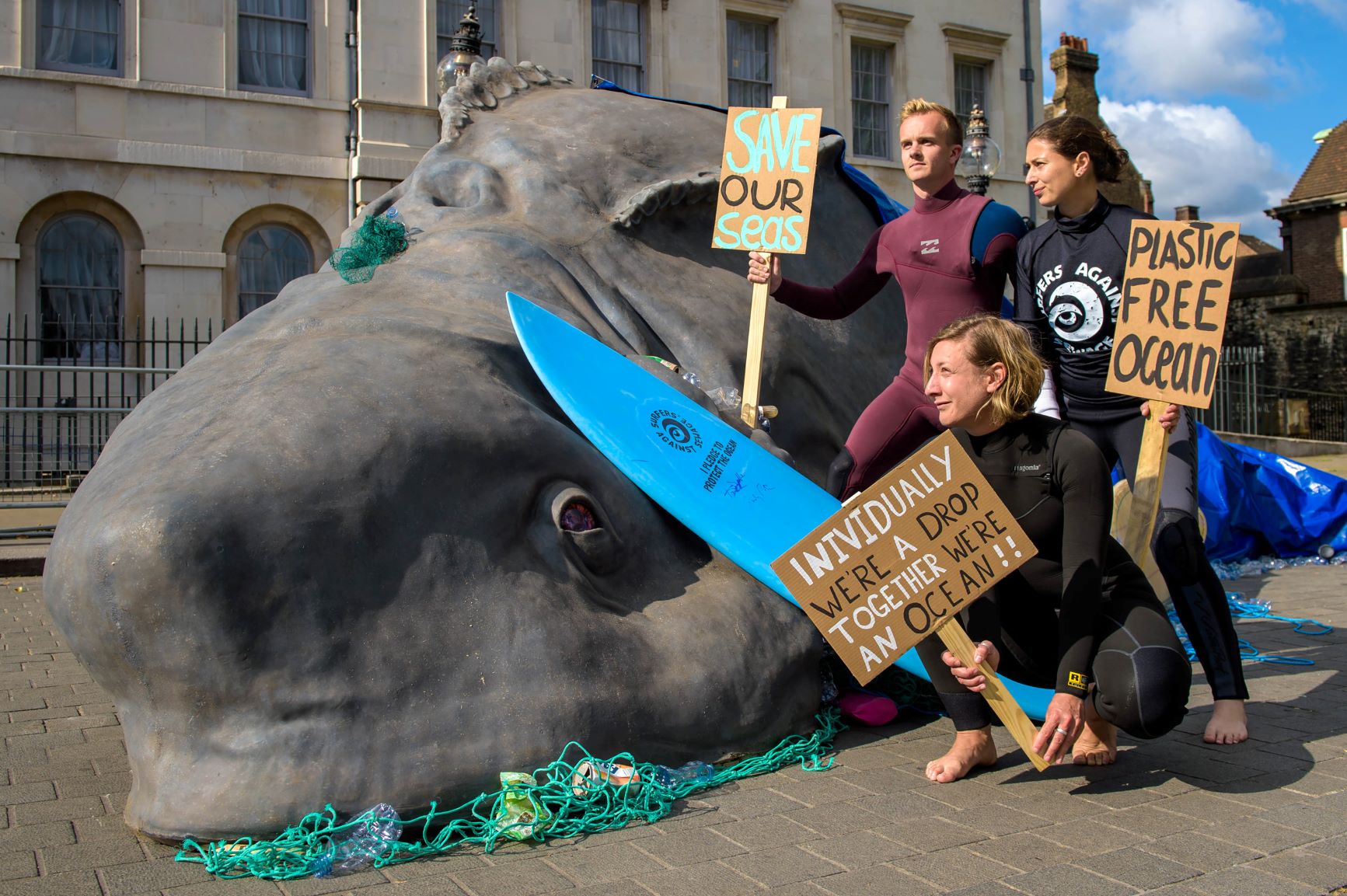
The Environment Bill: Getting the Targets Right.
This morning the government published its proposals for new Environmental Targets which will be set through the Environment Bill. These targets will help to drive forward government policy and investment from private companies over the next decade so its super important that government gets these targets right.
Government will set at least one long-term target in each of the four priority areas of; Air Quality, Resource Efficiency and Waste Reduction, Biodiversity and Water. And today we got our first look at how these targets will be set and what they might contain. As expected there is some good stuff which we welcome and some not so good stuff which we think needs improving.
The good stuff.
The Government proposes setting targets for improving habitats and biodiversity on land, in freshwater and in the ocean. This is good news as explicit targets for the marine environment should help to strengthen protections of areas which allow marine ecosystems to flourish. Government however must make sure that these targets are backed up by on the ground action to enforce marine protection.
The Government has also suggested targets to reduce the levels of chemical pollution from agriculture and sewage entering into the UK’s rivers and the Ocean. This is much needed as currently only 14% of rivers reach good ecological status[1] and the UK ranks just 25 out of 30 in Europe for coastal water bathing water quality[2]. These are very welcome targets but we think the government needs to go much further and introduce targets as soon as possible to end water companies use of Combined Sewage Overflows which discharged raw sewage into UK rivers over 200,000 times in 2019[3].
The press release accompanying the governments paper says that government will set targets to reduce the amount of waste and plastic pollution we produce, which is excellent and what SAS has been calling for. However, there is no mention of reducing plastic pollution in the policy paper itself. Instead there is too much of a focus on recycling, which as we know, on its own can’t tackle the plastic pollution and waste crisis. Given that 12 million tonnes of plastic are poured into the ocean annually[4] we need to see explicit targets for the reduction in the production and consumption of polluting and non-essential single use plastics.
The not so good stuff.
In order for the government to live up to their ambition to build back greener and ‘to deliver the most ambitious environmental programme of any country on earth.’ We believe that the process for setting targets needs some work.
The paper highlights that targets need to be set based on a robust, evidence-led process that seeks independent expert advice, provides a role for stakeholders and the public, as well as scrutiny from Parliament. Which we completely agree with, however as the Environment Bill stands, there is no legal obligation for the government to follow independent expert advice and the government should therefore amend the Bill to make that the case.
In addition, the government must also make sure that the targets it sets are ambitious enough to actually make a difference and to actively improve the environment. At the moment many of the targets suggested are simply a rehash of existing targets in the 25 Year Environment Plan which don’t go far enough to tackle the environmental and climate crisis we are facing.
We also think that setting just one target in each area is far too simple, we wont be able to restore the Ocean fully if we only have one target to improve small Marine Protected Areas, instead we need a broad array of targets that coupled together help to recover the ocean as a whole.

What can we do about it?
SAS will be working hard behind the scenes with other NGO’s to make sure that the environment targets give the ocean the best chance to recover. And you can help too by signing the #EndSewagePollution petition, and by joining the Plastic Protest and letting your MP know we want to see more action to protect the ocean.
The government will also be holding a public consultation next year on their proposed targets so stay informed and make your voice heard.
[1] WWF, Flushed Away: How Sewage Is Still Polluting The Rivers Of England And Wales (2017).
[2] A. F. C. Leonard, R. Garside, O. C. Ukoumunne, and W. H. Gaze, ‘A cross-sectional study on the prevalence of illness in coastal bathers compared to non-bathers in England and Wales: Findings from the Beach User Health Survey’ (2020) 176 Water Research 115700.
[3] S. Laville and N. McIntyre, ‘Exclusive: water firms discharged raw sewage into England’s rivers 200,000 times in 2019’ (2020).
[4] Dr C. Sherrington, (2016) Plastics in the Marine Environment, Eunomia Research. Available at: https://www.eunomia.co.uk/reports-tools/plastics-in-the-marine-environment/
